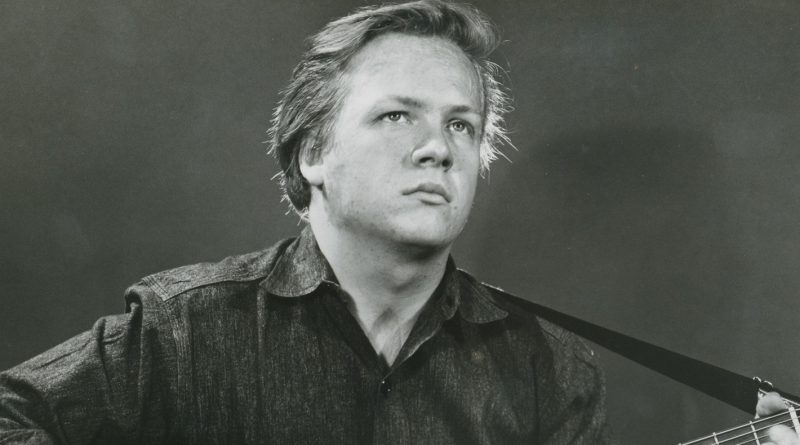Born Out Of Flames
The life and music of Jackson C. Frank
It was a tragedy and a blessing when the Cleveland Hill Elementary school burned down. A tragedy for the kids who’ve died and their parents that mourned. And a tragedy for the boy called Jackson Carey; he lost his girlfriend and classmates and was badly injured. But it was a blessing for the music world, because when Jackson Carey stayed in the hospital his teacher gave him a guitar. Out of flames a songwriter was born. Jackson Carey, also known as Jackson C. Frank, became an amazing singer songwriter. But a fairly known one.
When Jackson C. Frank was twenty-one he achieved an insurance check of more than $100.000. He went to England to work as a songwriter. In England he played at pubs where Paul Simon discovered him. Paul, by that time still unknown in the music world, produced his debut album, titled: Jackson C. Frank. After his release Jackson had a strong core of fans that came to his concerts. But he never could sustain himself as a songwriter.
After he went back to America he married. He and his wife got a kid, but the kid died young and they divorced. Jackson ended institutionalized afterwards, suffering from depression. After he left the hospital he went out looking for Paul Simon claiming that he still got some of his material. He ended up roaming the streets, without a home or a friend. Some kids on the streets blinded him with an air rifle. One of his old friends found him and encouraged him to write again. But the self-titled debut was the only album he made.
And it was a great folk-album. By all standards. Bob Dylan, Nick Drake, Bert Jansch, Paul Simon, none of them were able to make a better folk album than the first album of Jackson C. Frank.
The album is drenched in the blues. All the songs are about what is lost or what is about to get lost. Songs about girlfriends that do not want him, songs about milk and honey (a bible reference, that is mainly about the promise of goods that was never fulfilled), songs about nature and life, love and sorrow. He is a traditional folk artist. Swinging between romanticizing nature and romanticizing human relations. But there’s something eerily beautiful about his voice. His voice is warm and pure, a voice that sounds like it contemplates about life while it sings. In the trembling of the chorus you can find reasons that don’t need explaining, words that aren’t given in the lyrics, soul that isn’t find in the body.
The first song is called “The blues run the game”, where he seems to filter his life down to the core of it: the sorrow he always had to drag along with him.
“Livin’ is a gamble baby
Lovin’s much the same
wherever I have played
whenever I’ve thrown them dice
wherever I have played
the blues have run the game”
Though all songs are about his sad life, he never sounds self-pitying. He sounds blue and melancholic, reflecting objectively the misery life can give to someone. He sounds like someone remembering life but without all the emotions that come up with it, just producing information about what has been and what will never be.
Later on the album there is the song Kimbie, a love song where he sings about rough and rowdy men. He just wants Kimbie to let her hair down, even though she’ll be gone in the morning. There are no big statements about love in this song. But in the way he describes her and sings her name, you know how much he loves her.
On the end of the album, there’s the most astonishing folk-song ever written: Just like anything. It has beautiful guitar picking, with Frank’s mysterious lyrics floating above it like hot air balloons.
He sings:
“Just like anything
to sing
to sing
to sing
is a state mind”
And indeed for Jackson C. Frank singing is a state of mind. While singing he seems to find himself in another place, a vacuum of otherworldly safety. When he sings his life is a story, he doesn’t need to drag it along anymore, he only needs to tell it.
The recordings from the time that Jackson just got out of the streets, are very different from his first album. His voice is broken. All the suffering he endured seemed to have wiggled his way into his tongue and throat, infecting his voice with a virus of pain. It’s hard to listen to if you’ve heard the warm and soothing voice of his first album. After the recordings he soon died as a homeless drunk.
Jackson C. Frank is a true embodiment of the blues. He lived the live that Robert Johnson or Howlin’ Wolf sing about. The gritty, dark life, full of disappointments and despair. But it isn’t a life to long for. Though he sang the blues, the blues also led his life.

